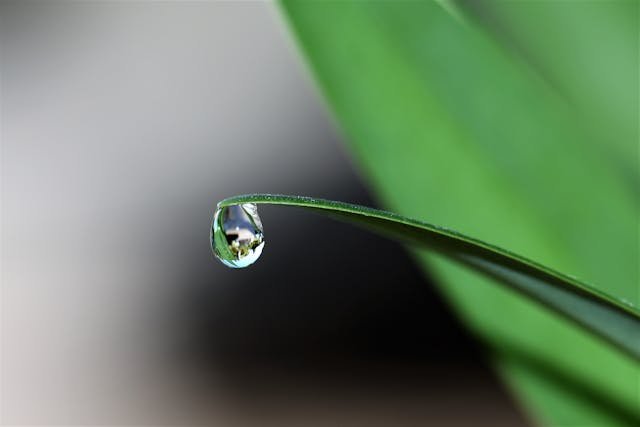Imagine this: You’re home after a long day, and your parents decide to shut off the water heater to save some energy. You’re chilling, but then a wild thought pops up—can a water heater explode if turned off? It sounds crazy, right? Like something out of a movie where stuff just randomly blows up! But seriously, could it happen?
And if not, why would a water heater explode anyway? Don’t worry—we’re here to dig into this hot topic (pun intended!). This article will address the question of whether a water heater can explode when turned off, and explain the factors that contribute to water heater safety. Let’s break it down step by step so you can feel safe and smart about what’s heating your water at home.

Understanding Water Heater Operation: What’s Going On Inside?
Okay, let’s get into it: that big tank in your basement or garage isn’t just magic—it’s got a job! Knowing how it works can help us figure out if a hot water heater blowing up is a real thing or just a scary myth. We peeked under the hood (well, not really, but you get it) and talked to a home safety pro to keep it simple. Here’s the deal on how it heats your shower water, why pressure and temp matter, and what stops a water heater explosion from turning your house into an action movie scene.
Basic Function: Heating Up Your Day
So, how does a water heater even work? Picture a giant thermos with a heater inside. Cold water flows into the tank, and a heating element—like a big electric coil or a gas burner—warms it up to about 120°F (that’s hot enough for a cozy shower but not boiling). The tank stores it there, ready for you to use, whether you’re washing dishes or soaking off a long day. It’s pretty chill—until something goes wonky, which is where the hot water heater blowing up question comes in.
Pressure and Temperature: The Hot Drama
Here’s where it gets interesting: heat and pressure are like besties in that tank. When water gets hot, it expands a little, and that builds up pressure inside. Normally, it’s no biggie—the tank’s built to handle it. But if the heat or pressure gets way out of control (like if something breaks), that’s when people start worrying about a water heater explosion. “Pressure’s the key,” says Jake Miller, a home safety expert we checked with. “Too much, and it’s like shaking a soda can—things can pop!”
Safety Features: The Explosion Blockers
Lucky for us, water heaters come with some built-in heroes to keep things safe. Let’s meet them:
- Temperature and Pressure Relief Valve (T&P Valve): This little gadget is a lifesaver—literally! It sits on the tank and watches the pressure and temp. If they climb too high (say, above 150 psi or 210°F), the T&P valve pops open and lets out steam or water to chill things out. “It’s like a safety vent to stop a hot water heater blowing up,” Miller explains. No valve, no bueno—that’s when trouble can sneak in.
- Thermostat: Think of this as the tank’s babysitter. It controls how hot the water gets by turning the heater on or off. Set it too high (like way past 140°F), and you’re asking for drama—more heat means more pressure, and that’s a recipe for a water heater explosion if other stuff fails. But when it’s working right, it keeps everything nice and calm.

Can a Water Heater Explode When Turned Off? Here’s the Scoop!
Alright, let’s tackle the big question: You flip the switch, turn off the water heater, and think, “Phew, safe!” But can it still go boom? Like, is a hot water heater exploding still a thing when it’s off? We’ve all wondered what causes water heaters to explode at some point—especially after hearing those wild stories. We chatted with home safety pro Jake Miller to get the real deal, and it’s not as simple as “on or off.” Here’s what could turn your tank into a hot water tank explosion waiting to happen—even when it’s powered down.
The Short Answer: Not Likely, But Not Impossible
Good news first: A water heater is way less likely to blow up when it’s turned off. No power, no heat, no problem—usually. “When it’s off, the tank isn’t actively heating, so the risk drops big time,” Miller says. But hold up—it’s not a total “never.” Crazy stuff can still happen, and that’s where things get tricky. So, no, a hot water heater exploding isn’t super common when it’s off, but it’s not 100% impossible either.
What causes water heaters to explode
Even with the power off, here’s what causes water heaters to explode in rare cases:
- Residual Pressure: Picture this: The heater’s off, but there’s still some pressure hanging out in the tank from when it was hot. Water expands when it heats up, and that pressure doesn’t just vanish the second you hit the switch. “If it’s trapped, it’s like a balloon ready to pop,” Miller explains. Not a hot water tank explosion every time, but it’s something to watch.
- External Heat Sources: Okay, imagine a fire breaks out nearby—or it’s crazy hot outside, like 100°F-plus. That extra heat can warm up the tank, even when it’s off, building pressure inside. “Anything that heats the water can mess with safety,” Miller says. It’s rare, but it’s one way a hot water heater exploding could sneak up on you.
- Malfunctioning T&P Valve: This little valve is supposed to let out extra pressure—like a safety whistle. But if it’s broken or stuck? Trouble. Even with the heater off, leftover pressure from before (or from heat sneaking in) can’t escape. “A bad T&P valve is a biggie for what causes water heaters to explode,” Miller warns. No release, no peace.
- Corrosion and Weakened Tank: Tanks get old, and rust can eat away at them over time. A weak, corroded tank is like a soggy paper bag—it can’t hold much before it rips. “If pressure builds up and the tank’s already falling apart, you’ve got a hot water tank explosion risk,” says Miller. Even turned off, a beat-up tank might not handle what’s inside.

Safety Precautions When Turning Off a Water Heater: Keep It Chill!
So, you’re about to turn off the water heater—maybe you’re heading out for a big family trip or just trying to save some energy. Awesome, but hold up! You don’t want a hot water heater exploded story ruining your vibe, right? We’ve all heard those “what if it goes boom” worries—like, can a water heater explode even when you think it’s safe? No stress—we’ve got your back with some easy steps to keep things cool and calm. We even ran these by home safety pro Jake Miller to make sure you’re golden. Here’s how to shut it down without drama.
Turn Off the Gas or Electricity: Cut the Power, Totally!
First things first: Flip that switch or turn that gas knob off—all the way. “If the heater’s still got power, it could keep heating and cause trouble,” Miller says. Whether it’s electric or gas, make sure it’s completely off. No power, no heat, no chance of a hot water heater exploded moment sneaking up on you. Double-check it’s dead before you move on—safety’s the name of the game!
Shut Off the Water Supply: Stop the Flow
Next up, find the water valve (usually a handle near the tank) and turn it off. Why? “Water flowing in can build pressure if something’s funky,” Miller explains. If the tank’s off but water keeps coming, it could mess with things inside—especially if heat sneaks in later. Shutting it off keeps the pressure chill and lowers any water heater explode risk. It’s like telling the tank, “Take a break, buddy.”
Drain the Tank (If Long-Term Shutdown): Let It Out
Planning to leave it off for weeks or months? Drain that tank! There’s a little valve at the bottom—hook up a hose, open it up, and let the water run out (outside, not your floor!). “Sitting water can rust the tank over time,” Miller says. A rusty tank’s more likely to crack, and that’s bad news if pressure builds later. Draining it keeps a hot water heater exploded scenario way less likely when you’re not around.
Inspect the T&P Valve: Check the Safety Whistle
That Temperature and Pressure Relief Valve? It’s your tank’s superhero. Give it a quick look—lift the lever a tiny bit (careful, it might drip hot water!) to see if it moves. “A stuck T&P valve can’t release pressure, and that’s a water heater explode waiting to happen,” Miller warns. If it’s jammed or looks crusty, get it fixed. This little guy’s job is to stop explosions, so make sure it’s awake!
Professional Inspection: Call in the Pros
If your water heater’s old—like, older than you—or it’s been acting weird (strange noises, leaks), don’t risk it. Get a pro to check it out. “Old tanks can hide damage that leads to a hot water heater exploded mess,” Miller says. A plumber can spot rust, weak spots, or busted parts you might miss. It’s like a doctor visit for your heater—better safe than sorry!

How to Prevent Water Heater Explosions (General Safety): Keep It Safe, Not Sorry!
Alright, let’s be real: No one wants their water heater to turn into a disaster movie scene—boom, water everywhere, total chaos! It’s rare, but it can happen if you’re not paying attention. So how do you keep that tank from going wild? We’re spilling the tea on some super-easy ways to stop trouble before it starts. We even bounced these tips off home safety pro Jake Miller to make sure they’re legit. Here’s how to keep your water heater chill and safe—no explosions allowed!
Regular Maintenance: Give It Some Love
Think of your water heater like a pet—it needs a little TLC to stay happy. “Regular checkups stop small problems from turning big,” Miller says. Every year or so, flush the tank—open the bottom valve and let the gunky water run out (with a hose, outside!). It clears out rust and junk that can mess things up. Also, peek at the safety stuff, like that T&P valve we talked about—lift it a bit to make sure it’s not stuck. A little maintenance goes a long way to keep the boom away!
Proper Installation: Get It Right the First Time
Setting up a water heater isn’t a DIY TikTok challenge—leave it to the pros! “A bad install can leave you with leaks or pressure probs,” Miller warns. A plumber knows how to hook it up so it’s safe and working like it should—no wobbly pipes or sketchy wiring. If it’s done right from the start, you’re way less likely to deal with a tank that’s mad and ready to blow. Trust the experts on this one—it’s worth it!
Replace Old Water Heaters: Know When to Say Goodbye
Water heaters don’t live forever—sorry, tank! Most last about 10-15 years, depending on how nice they are. “An old heater’s more likely to rust or crack,” Miller says. Check the label on yours (it’s usually got a date)—if it’s pushing past its birthday, start shopping for a new one. Replacing it before it gets cranky and falls apart keeps your house safe and your showers hot. Don’t wait for it to quit in a big, messy way!
Wrapping It Up: Can a Water Heater Explode If Turned Off?
Alright, let’s bring it home: Can a water heater explode if turned off? Here’s the tea—we’ve been digging into this all along, and the answer’s mostly “nah, not really,” but it’s not a total “nope.” Turning it off makes a blow-up way less likely since it’s not heating up and building pressure like crazy. But, yeah, stuff like leftover pressure, a busted T&P valve, or a rusty old tank can still pull a sneaky can water heater explode if turned off moment. Rare? Totally. Impossible? Not quite.
So, what’s the game plan? Keep it safe with some easy moves: Flip off the gas or electricity all the way, shut off the water supply, and drain the tank if it’s gonna sit for a while. Check that T&P valve to make sure it’s not asleep on the job, and call a pro if your heater’s looking sketchy or super old. Oh, and don’t sleep on regular maintenance—flush that tank yearly and get it installed right by someone who knows their stuff. Replacing an ancient heater? Smart move, too!
Bottom line: You’ve got this! Prioritizing water heater safety is like making sure your phone’s charged—do it, and life’s way less stressful. If anything feels off or you’re not sure, grab a pro to peek at it. No one wants a basement surprise, right? Stay safe, stay chill, and keep that tank from stealing the show!
Is it safe to turn off the water heater?
Yes, turning off your water heater is completely safe and can even help save energy. If you’re leaving home for an extended period or need to perform maintenance, switching it off prevents unnecessary heating. However, if you have a gas water heater, ensure there are no gas leaks before turning it back on.
How long can a water heater be turned off?
You can leave your water heater turned off for weeks or even months without causing damage. However, if it’s off for a long time, sediment buildup in the tank might harden, which can reduce efficiency when you turn it back on. If the heater has been off for several months or years, consider flushing the tank before using it again.
What happens if your water heater turns off?
If your water heater turns off unexpectedly, a few things might be happening:
For gas water heaters: The pilot light might have gone out, or there could be a gas supply issue.
For electric water heaters: A tripped circuit breaker or a faulty thermostat could be the cause.
For both types: If the unit shuts down due to overheating, it may be a sign of pressure buildup or a faulty heating element.
If you’re unsure why it turned off, check for error codes (if available) or call a professional to inspect it.
Can a water heater explosion kill you?
Yes, while rare, a water heater explosion can be deadly. Explosions usually happen when:
The pressure relief valve fails to release excess steam.
Gas leaks cause a fire or explosion when ignited.
Extreme corrosion weakens the tank, making it burst under pressure.
Regular maintenance, checking for leaks, and ensuring your heater is properly vented can prevent such dangers.
Can an electric water heater explode?
Yes, but it’s less common than with gas water heaters. Electric models don’t have gas leaks, but they can still explode due to pressure buildup if the thermostat malfunctions or the pressure relief valve is faulty. Overheating, faulty wiring, or excessive sediment buildup can also increase the risk.
Will a leaking water heater explode?
A leaking water heater won’t necessarily explode, but it’s a sign that something is wrong.
If the leak is from the bottom, it could mean internal corrosion, which weakens the tank.
If the leak is from the pressure relief valve, your heater might be overheating, which could lead to an explosion if not fixed.
If you notice leaks, turn off the heater and get it checked immediately to avoid bigger issues.

Anamika is a passionate writer for Eco365Store.com, specializing in topics that inspire a cleaner, greener world. With expertise in home cleaning, recycling, and eco-friendly solutions, she crafts engaging and informative articles that help readers adopt sustainable practices in their daily lives.

